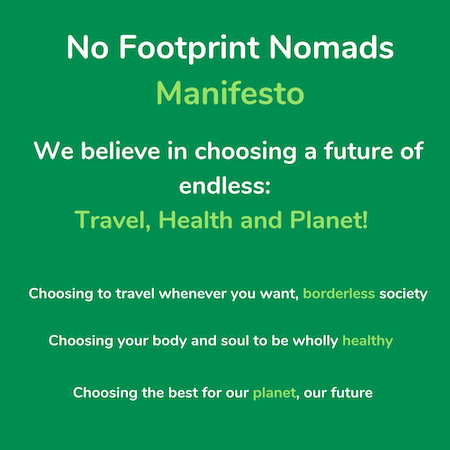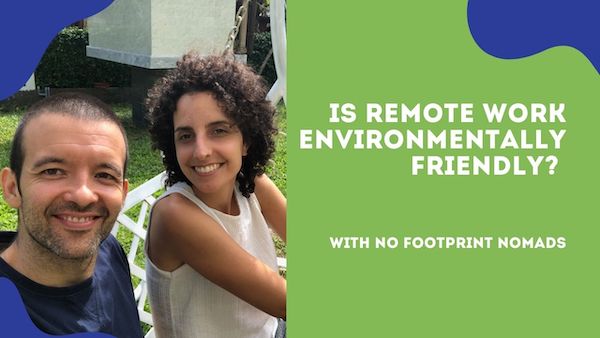Is the digital nomad lifestyle environmentally friendly? Turns out, it’s not such an easy question to answer, when you consider how remote work has changed migration patterns and societal structures. I dig into this and much more with J and Sara of No Footprint Nomads!
Are you interested in eco travel and sustainable tour companies? Check out these search engines, tour companies, and booking tools that help you find socially responsible and eco friendly travel experiences.
Other Environmental Issues and Engaging Interviews to Check Out:
Eco-Friendly Travel Products to Check Out
Pros and Cons of Being a Digital Nomad vs. Having a Home Base, with Sherry Ott
Solo Travel over 50: What It’s Like
How to Run a Remote Team Around the World, with Chris Dyer
My Zero-Waste Kit for Travel
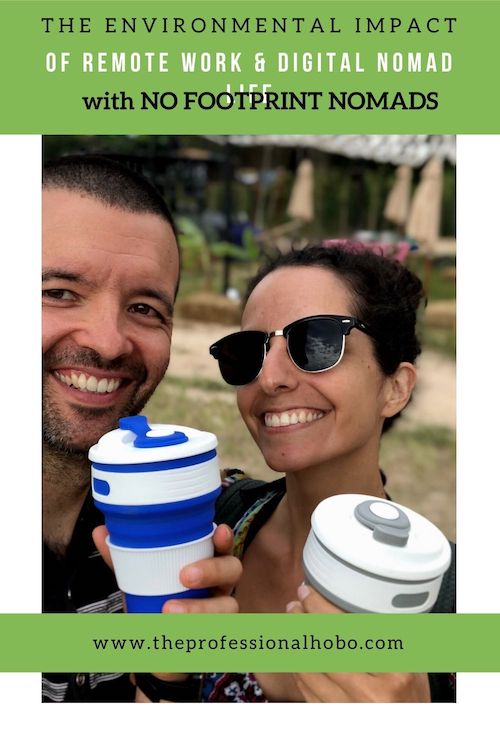
Meet Joao and Sara, No Footprint Nomads
Travel often inspires major life turning points, and J (Joao) and Sara are no exceptions. In 2010 they decided to travel slowly around the world, and their lives were never the same afterwards.
J realized his heart wasn’t aligned with his current career path while volunteering on a permaculture farm in Nicaragua.
After that, he was incapable of returning to his career as an Industrial Engineer in big corporations, and he decided to focus all is efforts on a more purpose-driven work life balance. He started a company called Clube Greens and then embarked in online work without ever looking back.
Sara decided to become vegan in Argentina (which even she admits was an ironic twist given the fame of Argentina’s barbecue culture).
She cofounded Summit Food With Conscience, an event that raises public awareness on the topic of sustainable food production and consumption, while promoting projects with an impact.
Together, J and Sara are No Footprint Nomads, and have lived nomadically since 2010. They organize summits and collaborate in projects (like Thriving Nomads) that focus on sustainability and remote work.
If Thriving Nomads interests you check out these other Top Digital Nomad Conferences!
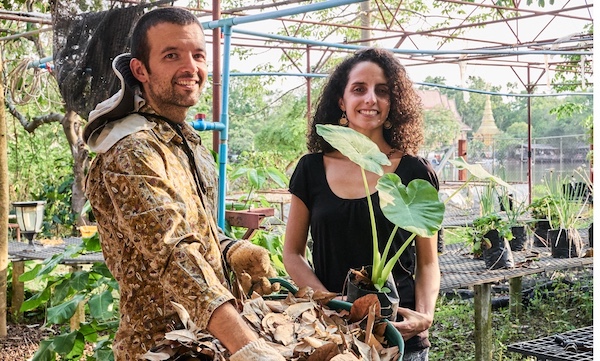
In this interview, we discuss things like:
- How J’s life and perspective changed on a trip to Nicaragua, and the effect it had on his career
- J’s difficult transition from a corporate career to a passion-based business, and why the first one failed
- How and why Sara became a vegetarian and the effect it had on her life
- How they ended up running purpose-driven passion-based online businesses
- The societal and environmental advantages of remote work
- Is being a digital nomad environmentally friendly? (Spoiler alert: there’s a lot to consider)
- Why both J and Sara as well as myself committed to a zero-waste lifestyle (and we geek out on zero waste tools)
- And we all share our top tips and tools to live and travel with zero waste (or close to it)
- How to not only reduce our environmental impact as digital nomads, but how to create a positive impact!
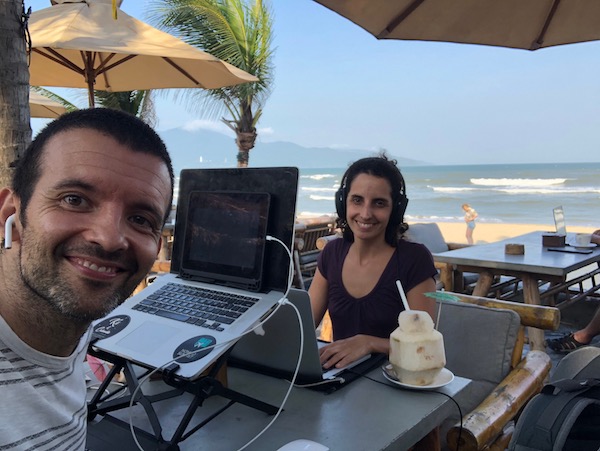
Watch our Interview Here!
You may have noticed that in the last few episodes of The Remote Work & Travel Show, I have transcribed the interviews here on my site. But things didn’t work out with my transcriber, and I began to question whether my efforts in transcribing these interviews were worthwhile.
What do you think? Would you rather read than watch? Leave a comment with your thoughts, and I’ll take it into consideration. Thanks!
In the meantime, click here to watch our interview on YouTube, or simply click play to watch below.
